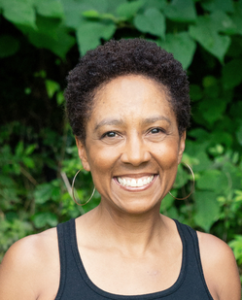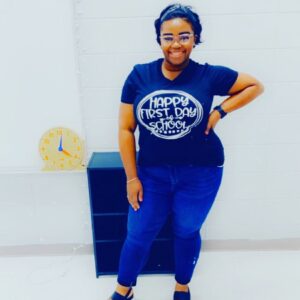Celebrating Future Teachers of America Day 2020
When you think about the educators you’ve had in your life, does one stand out? Maybe someone who encouraged you to pursue your dreams or taught in an innovative way? We’re willing to bet you can think of at least one teacher or professor who helped shape who you are today. Educators are special people, and Future Teachers of America Day is all about celebrating individuals who have chosen to be one!
Teaching is an integral part of our society. And, let’s face it, sometimes it can be challenging (teaching in the middle of a pandemic, anyone?).
In honor of this day, we virtually linked up with two Birmingham-based educators, Olivia and Alex, to discuss why they chose to become teachers and to glean tips they have for future teachers.
 Dr. Olivia Affuso
Dr. Olivia Affuso
Associate Professor of Epidemiology at The University of Alabama at Birmingham
School of Public Health, focus in Epidemiology
Before we get into our Q&A, we want to recognize that today is Dr. Affuso’s birthday! Happy, happy birthday!
Why did you want to become a teacher/instructor?
I guess I didn’t really have a super clear vision that I wanted to be a teacher, but I always saw myself in an institution of learning. So, my uncle was a college professor and I would go to his labs (he was a chemistry professor) where he would show me all kinds of fun experiments. Of course in the fifth grade, I probably had the most elaborate science experiments with beakers of liquid that would change colors. I remember having these little papers, and the students would come by and dip them into the beakers, and the paper would change colors. It sparked a lot of curiosity in the kids.
So, eventually, I did start to envision myself with an office in a university surrounded by books, with the opportunity to learn things and to explore.
Which teacher or instructor from your past inspired or encouraged you? How?
Probably the person that inspired me the most and was most beneficial in my college career was Dan Benardot. He is like a world-renowned sports nutritionist. I got my masters degree at Georgia State University, and I worked with Dan in his lab where the focus was on elite athletic performance. I had an opportunity to engage with elite athletes including gold medal elite gymnasts!
What unexpected challenges have you faced since becoming a teacher?
I think one of the biggest challenges in the earlier part of being a professor (keep in mind that I am primarily trained as a scientist) was that I needed to get additional training to move into the instructor role. And then, I think the most challenging part was really understanding who the students were each semester. I mainly teach grad students, and I had preconceived notions that they would be sort of self-motivated and have a well-defined understanding of their learning process. I really expected the students to have more critical thinking skills. The biggest challenge was learning to meet them where they are. So if the students weren’t grasping the concepts, I had to remind myself that didn’t mean the students weren’t bright! They just weren’t used to learning in the way I was teaching them.
I really enjoy encouraging curiosity, so one thing that I do with all my classes is throw out the whole notion of grades. Students come to class like, “Oh my gosh, I gotta get an ‘A,’” and they’re more focused on getting an ‘A’ than they are on really learning the material. It was pass/fail at UNC Chapel Hill for me when I got my PhD. It’s hard to learn when you’re pressured. A lot of education, especially early education, is focused on just teaching for the test.
So, for several of our programs, we have taken away the GRE requirement. We made that decision based on data. We did our own analysis that basically showed us that GRE scores were not a predictor about who would be successful in those specific programs. I’m not really a fan of standardized tests. If I give you a task, can you perform the elements of the tasks that may give me some indication of your mathematical and spatial abilities? But because students have grown up learning so they could pass a test, they need a little more encouragement when I ask them to apply what they’ve learned in a practical sense. That is still a challenge.
What’s your favorite thing about being a teacher now?
I love my students. I love watching them go from being sort of anxious and me having to kind of talking them down from the ledge, like, “it’s gonna be fine, you’re gonna learn something,” and subsequently watching them fall in love with epidemiology. I’m kind of proud of the fact that many students choose epidemiology as their major after having my class. I’ve seen students go from crying in the corner of my office to becoming medical residents, and it just warms my heart. Not all the students love me – but I’ve been fulfilled by the interactions I’ve had with the majority of the students and watching them grow in their careers. I’ve been there (in their shoes).
What advice would you give to people wanting to become a teacher or instructor in the future?
So, I think for people considering going all the way through the grad program to become a grad level instructor – really find that thing you’re passionate about doing and never let anyone devalue your contribution as an instructor. I think teaching is such a fulfilling career. The salaries could be better for some instructors, so I think people going into this should understand what those challenges are, and they should prepare to advocate for better salaries. A lot of salaries for teachers/instructors/faculty don’t reflect the value they bring to their institutions, and that’s really sad in my opinion.
Anything else you’d like to share with future teachers of America?
I would say to anyone who wants to be a teacher, go for it, and never lose your love of teaching.
 Alexandria Washington
Alexandria Washington
General Education Teacher at Midfield Elementary School
Third Grade Math and Science Teacher
Why did you want to become a teacher/instructor?
I became a teacher because I wanted to help students. I know that there are other careers where you can work with kids, but in teaching you are able to shape and mold their futures.
Which teacher or instructor from your past inspired or encouraged you? How?
All my teachers have inspired me! When I think back about my time in school, I first think of the teachers that I had in elementary school. Those are the teachers that I strive to be like when I teach my students today. I pull from those memories when I work with my students. When I reflect back on my time in high school, those teachers were the ones that gave me courage that I could do any and everything I put my mind to!
What unexpected challenges have you faced since becoming a teacher?
If I can be honest, the hardest thing or challenge that I have faced is teaching during a pandemic. There was nothing in school that we learned that could have prepared us for teaching the way we are this year. Specifically, having students learn hands-on concepts virtually has been particularly challenging.
What’s your favorite thing about being a teacher now?
I love to see the look on my students’ faces when they finally understand a concept.
What advice would you give to people wanting to become a teacher or instructor in the future?
Every day is a learning process.
Anything else you’d like to share with future teachers of America?
Take time for yourself, and remember: YOU GOT THIS!
Get Out There and Teach!
Hopefully, you have been as inspired reading their words as we were while talking to these two awesome ladies! Happy Future Teachers of America Day, and good luck to all the future (and present) educators out there!